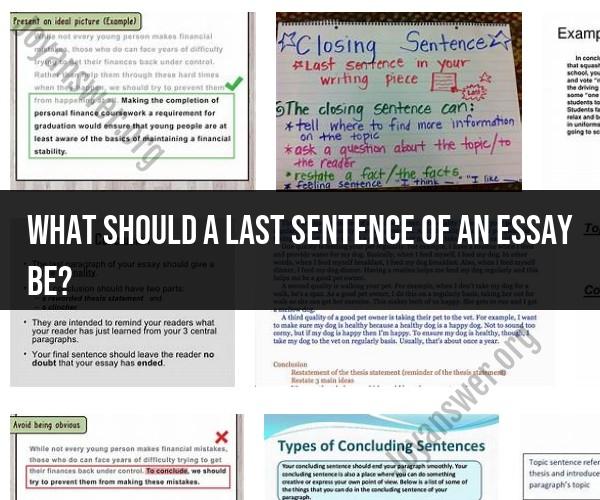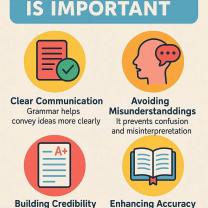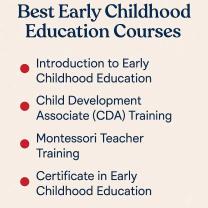What should a last sentence of an essay be?
The last sentence of an essay should leave a lasting impression on your reader and effectively conclude your thoughts or arguments. It should achieve several key objectives:
Summarize Your Main Points: Your last sentence should encapsulate the main points or arguments you've made throughout the essay. It should remind the reader of the key takeaways.
Provide Closure: It should give the reader a sense of closure, signaling that the essay is coming to an end. This closure can be emotional or intellectual, depending on the tone and content of your essay.
Leave a Thought-Provoking Impression: A memorable last sentence often leaves the reader with something to think about. It might pose a question, make a prediction, or offer a powerful insight. It should provoke thought and reflection.
Connect to the Introduction: If possible, your last sentence can create a sense of symmetry by connecting back to something mentioned in the introduction. This can provide a satisfying sense of completeness to your essay.
Reflect the Tone of the Essay: The tone of your last sentence should align with the overall tone of your essay. If your essay is serious, humorous, reflective, or persuasive, the last sentence should reflect that tone.
Avoid Introducing New Information: Your last sentence is not the place to introduce new information or arguments. It should tie up existing ideas rather than opening up new avenues of discussion.
Here are a few examples of effective last sentences for different types of essays:
Argumentative Essay: "In conclusion, the weight of evidence points unmistakably to the need for swift and decisive action to address climate change before it's too late."
Narrative Essay: "As I gazed out at the sunset, I realized that even in our darkest moments, there's always a glimmer of hope on the horizon."
Expository Essay: "In sum, the intricate workings of the human brain continue to reveal new mysteries, reminding us that the quest for knowledge is an endless journey."
Persuasive Essay: "Let us not forget that change begins with each individual, and by choosing to be part of the solution, we can pave the way for a brighter future."
Reflective Essay: "In retrospect, this journey of self-discovery has taught me that the path to personal growth is often paved with challenges, but it's these very challenges that shape our character."
Remember that the last sentence is your final opportunity to leave a strong impression on your reader, so take your time crafting it to ensure it accomplishes these objectives and lingers in your reader's mind.
Crafting a Strong Conclusion: What Should the Last Sentence of an Essay Be?
The last sentence of an essay is your final chance to leave a lasting impression on your reader. It should be strong, memorable, and relevant to your overall thesis statement.
Here are a few tips for crafting a strong concluding sentence:
- Restate your thesis statement in a new way. Don't simply repeat your thesis statement verbatim. Instead, try to rephrase it in a way that reflects the insights you've developed throughout your essay.
- Leave your reader with something to think about. Don't be afraid to ask a question, pose a challenge, or make a bold prediction. Your goal is to leave your reader with something to ponder after they've finished reading your essay.
- Tie back to your introduction. If possible, try to connect your concluding sentence to your introduction in some way. This will help to create a sense of unity and wholeness for your essay.
Here are a few examples of strong concluding sentences:
- Example 1: "While the effects of climate change are already being felt around the world, it is not too late to take action. By working together, we can reduce our greenhouse gas emissions and build a more sustainable future for all."
- Example 2: "The work of Leonardo da Vinci continues to fascinate and inspire people centuries after his death. His genius was evident in his paintings, sculptures, drawings, and scientific studies. He was a true Renaissance man, and his legacy continues to influence artists and scientists today."
- Example 3: "The next time you find yourself feeling overwhelmed by the challenges facing our world, remember that you are not alone. We are all in this together. And by working together, we can make a difference."
Strategies for Leaving a Lasting Impression in Your Essay's Conclusion
In addition to having a strong concluding sentence, there are a few other things you can do to leave a lasting impression on your reader in your essay's conclusion:
- Restate your thesis statement in a new way. This will help to remind your reader of your main argument and leave them with a clear understanding of what you've tried to accomplish in your essay.
- Summarize your essay's key points. This will help to consolidate your main ideas in your reader's mind and make it easier for them to understand your overall argument.
- Leave your reader with food for thought. This could involve asking a question, posing a challenge, or making a bold prediction. Your goal is to leave your reader thinking about your essay and its implications long after they've finished reading it.
Here are a few additional tips for leaving a lasting impression in your essay's conclusion:
- Use strong language and vivid imagery. Choose your words carefully and use them to create a powerful and memorable impression on your reader.
- Be concise and to the point. Your conclusion should be brief and to the point. Avoid introducing new information or arguments in your conclusion.
- Proofread carefully. Make sure to proofread your conclusion carefully before submitting your essay. Typos and grammatical errors can leave a negative impression on your reader.
Summarizing Your Essay's Key Points and Leaving Your Reader with Food for Thought
When summarizing your essay's key points in your conclusion, be sure to focus on the most important ideas that you've developed throughout your essay. Avoid simply repeating yourself. Instead, try to synthesize your main points into a concise and coherent statement.
Here are a few tips for summarizing your essay's key points effectively:
- Identify your essay's main points. What are the most important ideas that you've tried to communicate in your essay? Once you've identified your main points, you can start to think about how to summarize them in a concise and coherent way.
- Use transition words and phrases. Transition words and phrases, such as "in addition," "similarly," and "finally," can help you to connect your main points and create a smooth flow for your conclusion.
- Be concise and to the point. Your conclusion should be brief and to the point. Avoid simply repeating yourself or introducing new information.
To leave your reader with food for thought, you could ask a question, pose a challenge, or make a bold prediction. Your goal is to leave your reader thinking about your essay and its implications long after they've finished reading it.
Here are a few examples of questions, challenges, and bold predictions that you could use to leave your reader with food for thought:
- Questions: What are the implications of your essay for the future? What are some unanswered questions that your essay raises?
- Challenges: What are some ways to address the problems that you've discussed in your essay? What are some obstacles that need to be overcome in order to achieve your goals













